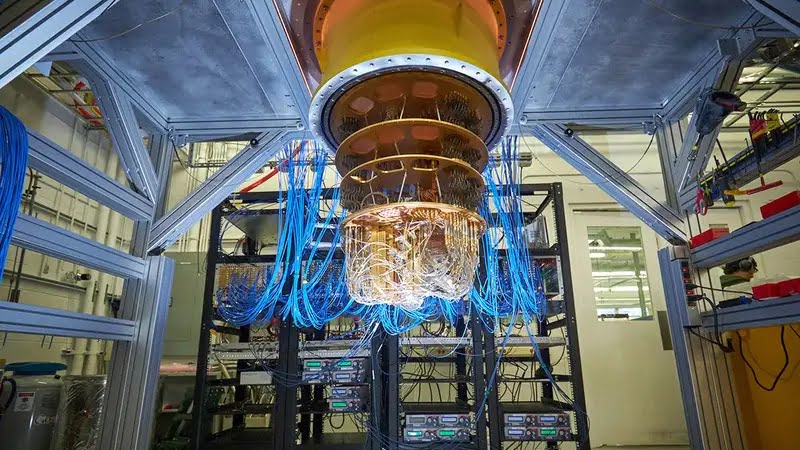
Google has announced a milestone in error correction in quantum computers. Could this revolutionize the future of computing? The backgrounds.
As early as 2019, Google built the quantum computer “Sycamore”. He was able to solve an arithmetic task within three and a half minutes, which would have taken the fastest supercomputer around 10,000 years.
Now Google has reached another milestone in terms of quantum computers. The US group published the research results in the specialist journal Nature published.
Google and Alphabet CEO Sundar Pichai describes the progress as a “milestone” in a blog post. According to this, the Quantum AI researchers succeeded for the first time in experimentally demonstrating the reduction of quantum errors with an increase in the number of qubits.
How can Google reduce errors in quantum computing?
Hartmut Neven, head of Google’s quantum department, describes the progress according to the Financial Times as a “milestone on our way to building a usable quantum computer”.
Until now, quantum computers have been extremely error-prone. This is primarily due to the quantum bits – or qubits for short. Because these are particularly sensitive and can only hold their quantum state for a very short fraction of a second.
According to Pichai, the qubits are so sensitive that “even stray light can lead to calculation errors”. This problem is exacerbated the larger the quantum computer is.
Due to the very short time window available, quantum computers have rarely been able to carry out their calculations to the end. As a result, the information is lost.
How does Google intend to solve this problem?
To ensure that the qubits remain stable for longer in the future so that they can devote themselves to their computing task, Google has encoded several physical qubits into a “logical qubit”. In this way, the arithmetic task is spread over several shoulders.
So several qubits are connected to form a logical unit. If an individual then falls out of its quantum state, the logical unit can still continue to calculate.
In the tests, Google was able to reduce the error rate by four percent. This may sound like a small number at first, but according to the researchers, a “break-even point” has been exceeded with this progress.
It is the first time that the enlargement of the quantum computer has not also led to an increase in the error rate.
Google: What does the future of quantum computers look like?
Experts see the technology of quantum computers as a future market. Because according to a forecast, the market potential for quantum computers could already be 135 billion US dollars by 2040.
By 2050, that number could even rise to $295 billion. And even in the baseline scenario of this forecast, the total size of the quantum computing market would be $263 billion.
Also interesting:
Source: https://www.basicthinking.de/blog/2023/02/23/google-quantencomputer/


